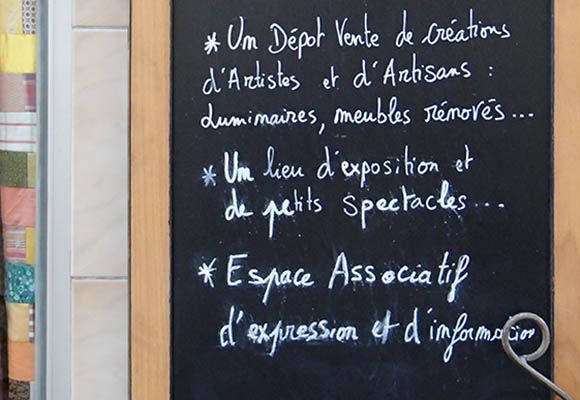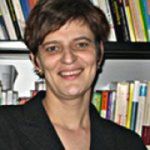Session
Transformative social innovations in mountain territories
Cité des Territoires - Université Grenoble-Alpes
Du 11/01/2017 au 13/01/2017

To be sure, mountain regions innovate, but are their forms of innovation necessarily singular? Do they participate in bringing about a profound transformation to the territorial paths and positions taken?
This session will attempt to answer these questions by focusing on social innovation, i.e. collective initiatives taken by citizens in response to social needs which are not otherwise fully satisfied by the market or political organisations (Klein and Harisson, 2007), and on its potential to transform mountain territories.
Lots of social innovation players subscribe to a vision of societal transition (Avelino et al., 2014; Pruvost, 2013). Others rely more on creativeness and culture, which infers setting up creative groups or classes in rural suburbs (Bourdeau and Lebreton, 2013). Beyond individual initiatives and their effects, many approaches experiment with collective forms and methods of change, which give social innovation projects a genuinely territorial component. The territories concerned thus become experimental laboratories that come to represent an alternative, and engender a new form of attractiveness (Koop and Senil, 2016).
In this session, we will examine:
- The forms of social innovation in mountain regions in terms of their spatial aspects: Are these social innovations spatially limited, where they take the form of a place "with a difference" or an oasis disconnected from the territory? Do they operate as networks (Nicholls et al., 2013)? Can processes based on territorialisation and on the emergence of socially and culturally innovative circles be observed (Longhurst, 2015)? What is the territorial anchoring of new symbolic and imaginary values, and of new lifestyles?
- Social initiatives specific to mountain regions: This topic calls for comparisons to question the specificities of the mountain regions concerned. These comparisons may equally be based on the status (metropolitan outskirts), the types of economy (rural, tourism), or the environment's specificities (exposure to risks, slopes, climatic limitations). If certain types of mountain regions come across as being attractive and particularly conducive to social innovation, how do these particularities in turn promote the emergence of specific forms of social innovation? (mobilisation of local know-how, local resources?)
- The socio-cultural transformations inferred: While we can observe numerous projects initiated by "local" players, certain mountain regions also attract "external" players, often urban, who choose these regions to set up their projects and explore their personal ideals, since they consider them as places with "possibilities". However, these projects and visions are not always shared by the region's "elders". From fragmentation to collective dynamics, how do these socio-cultural transformations of the territories tie in with one another? What is their convening power? Do they help to reduce marginality and exclusion? Do they lead to conflicts?
- The governance of socially innovative territories: Local populations are not the only ones confronted with changes within their territory; so are territorial authorities. How do public stakeholders react to this new set of dynamics? Do they satisfy the expectations of those who instigate these changes? Which conflictual situations and what kinds of cooperations can be observed? Do any new forms of territorial governance emerge (Klein, 2009)? How can we refer to them (participatory governance, transition governance)?
Session 3 Transformative social innovations in mountain territories |
||
| Wednesday 11 January | ||
| 14h00-15h40 Séquence n° 1 : Quelles trajectoires territoriales ? Animateur : Manfred Perlik Rapporteur : Kirsten Koop |
Reconnecting in times of disconnection. Challenges and opportunities in promoting shared economic and innovation strategies across the alpine space URETA Ivan, University of Applied Sciences of Southern Switzerland |
|
| Des vaches et des touristes : l’innovation partagée en moyenne montagne (19e-20e siècle) (Cows and tourists : shared innovation in mountainous area (XIX C.-XX C.)) DELA-VEDOVA Gilles, Laboratoire d'Etudes rurales (LER), Lyon 2 |
||
| L’entrepreneur, l’artiste et « les locaux » : quelle(s) cohabitation(s) ? (The businessman, the artist and "the natives": which cohabitation ?) CRETTON Viviane, Institut Travail social, University of Applied sciences and art |
||
| Discussion collective | ||
| COFFEE BREAK - 15:40 - 16:00 | ||
| 16h00 - 17h40 Séquence n°2 : Quelles transformations sociales ? Animateur Kirsten Koop Rapporteur : Pierre-Antoine Landel |
Innovations sociales en milieu périphérique : Plus que de travail social ou d’ingénierie régionaliste? (Social innovations in mountainous regions : More than social work or regionalist engineering ?) PERLIK Manfred, SLEE Bill, CDE Bern / PACTE |
|
| Un territoire en panne d’innovation ? Le cas du Val d’Hérens (Suisse). (A territory with gaps of innovation? The case of the Hérens’ Valley (Switzerland).) PARADIS Sylvie, Departement de Géographie et environnement, Université de Génève, Suisse, SGARD Anne, Departement de Géographie et environnement, Université de Génève, Suisse, PETITE Mathieu, Departement de Géographie et environnement, Université de Génève, Suisse, MICHELET Jacques, Departement de Géographie et environnement, Université de Génève, Suisse |
||
| Innover en résistant : processus alternatifs et capabilités territoriales en Val de Suse. (Innovate through resistance: alternative processes and territorial capabilities in Susa Valley.) SOUBIROU Marina, Pacte, LabEx ITEM - Université Grenoble Alpes |
||
| Discussion collective | ||
| Thursday 12 January | ||
| 10h45 - 12h45 Séquence n° 3 : Quelles Interactions collectives ? Animateur : Pierre-Antoine Landel Rapporteur : Manfred Perlik |
Réinventer le Khumbu : la société sherpa à l’ère du « Yak Donald’s » (Inventing the new Khumbu : the "Yak Donald's" and the Sherpa society) JACQUEMET Etienne, UMR PASSAGES 5319 , CNRS - Bordeaux Montaigne |
|
| Au fond de la montagne … l’utopie : expériences alternatives contemporaines dans la moyenne montagne ariégeoise (At the end of the mountain ... the utopia : contemporary alternative experiment in ariégeoises mountains) DUBERTRAND Benjamin, LISST-CAS, Université Jean-Jaurès |
||
| Quel point de rencontre entre innovation, authenticité et développement durable à la Vallée Bras-du-Nord (Québec) (Meeting point between innovation, authenticity and sustainable developement in Vallée Bras-du-Nord (Québec)) FALARDEAU Isabelle, Chaire de recherche en partenariat sur l'attractivité et l'innovation touristique (Québec-Charlevoix), Université Laval, MARCOTTE Pascale, Chaire de recherche en partenariat sur l'attractivité et l'innovation touristique (Québec-Charlevoix), Université Laval |
||
| La nouvelle gestion participative des communaux dans le Johar (Kumaon, Himalaya indien) : entre innovation et fragmentation socio-politique (New common's participative management in the Johar (indian Himalayas) : from socio-political innovation to fragmentation) LÉTANG Mauve, UMR Espace, Nature et Culture (ENeC), Université Paris-Sorbonne, GARAMBOIS Nadège, , AgroParisTech , VIRDI Malika, , Membre du Van Panchayat de Sarmoli, scientifique indépendante, LE BIHAN Marion, AgroParisTech, LANDY Frédéric, UMR Lavue, Université Nanterre La Défense |
||
| Discussion collective | ||
| LUNCH 12:45 - 14:00 | ||
| 14h00 - 15h40 Séquence n° 4 : Quelles méthodes d'identification ? Animateur : Manfred Perlik Rapporteur : Pierre-Antoine Landel |
Potentials of Social Innovation in Marginalised Rural Areas – An overview of the SIMRA project (Les potentialités de l'innovation sociale dans les territoires ruraux des marges : une présentation du projet SIMRA) NIJNIK Maria, BARLAGNE Carla, MILLER David, The James Hutton Institute - Aberdeen |
|
| What methods to evaluate Social Innovation in mountain areas? A reflection on specific critical issues (Quelles sont les méthodes pour évaluer l'innovation sociale dans les zones de montagne? Une réflexion sur des questions essentielles) BURLANDO Catie, Dipartimento Territorio e Sistemi Agro-Forestali (TESAF), University of Padova, Italy, SECCO Laura, Dipartimento Territorio e Sistemi Agro-Forestali (TESAF), University of Padova, Italy , PISANI Elena, Dipartimento Territorio e Sistemi Agro-Forestali (TESAF), University of Padova , DA RE Riccardo, Dipartimento Territorio e Sistemi Agro-Forestali (TESAF), University of Padova, Italy |
||
| Quand l’innovation sociale change la dynamique des territoires de montagnes. (When social innovation changes the dynamics of mountain territories.) KOOP Kirsten, LANDEL Pierre-Antoine, SENIL Nicolas, Pacte, LabEx ITEM - Université Grenoble Alpes |
||
| Discussion collective | ||

 Facebook
Facebook Forward
Forward Google+
Google+ LinkedIn
LinkedIn Twitter
Twitter





